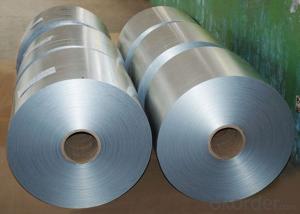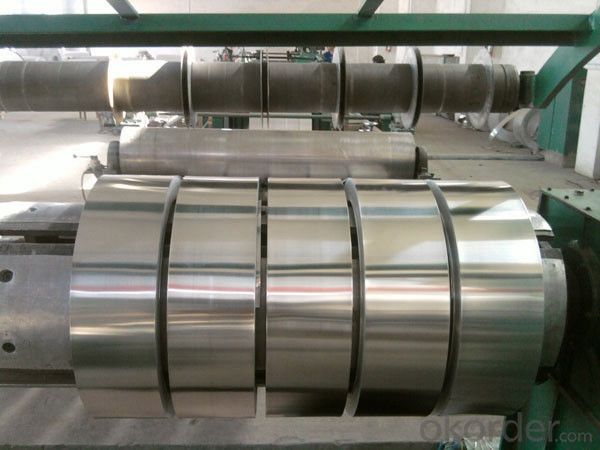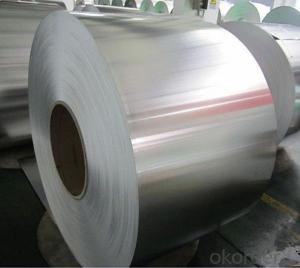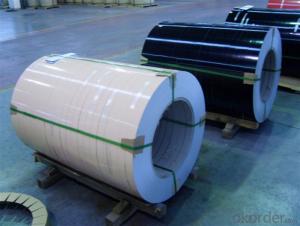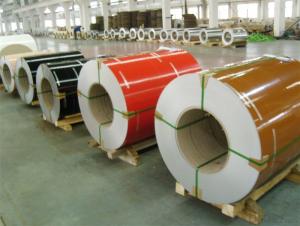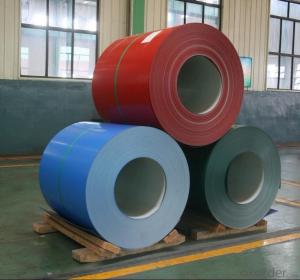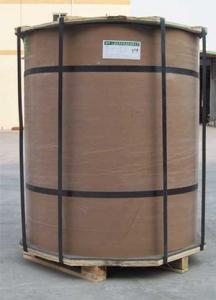5754 Aluminum Coil - Anodized Aluminum Rolls for Sale China Supply
- Loading Port:
- Shanghai
- Payment Terms:
- TT OR LC
- Min Order Qty:
- 5 m.t.
- Supply Capability:
- 10000 m.t./month
OKorder Service Pledge
OKorder Financial Service
You Might Also Like
Specification
1. Specification of Anodized Aluminum Rollss for Sale China Supply
characteristics | Application |
1) Super peeling strength | 1) Building exterior curtain walls |
2) Excellent surface flatness and smoothness | 2) Decoration and renovation additions for old buildings |
3) Superior weather, corrosion, pollutant resistance | 3) Decoration of interior walls, ceilings, bathrooms, kitchens and balconies |
4) Even coating, various colors | 4) Shop door decorations |
5) Fireproof, excellent heat and sound insulation | 5) Advertisement board display platforms and signboards |
6) Superior impact resistance | 6) Wallboards and ceilings for tunnels |
7) Lightweight and easy to process | 7) Industrial materials, materials for vehicles and boats |
2. Application of Anodized Aluminum Rollss for Sale China Supply
(1).Interior: wall cladding, ceilings, bathrooms, kitchens and balconies, shutters, doors...
(2).Exterior: wall cladding, facades, roofing, canopies, tunnels,column covers , renovations...
(3).Advertisement: display platforms, signboards, fascia, shop fronts...
3. Feature of Anodized Aluminum Rollss for Sale China Supply
*Such coil is specially designed to replace aluminum ingot, due to the high export tax of aluminum ingot, the coil has better price than ingot.
*This type of coil can fit customer's remelting furnace just like ingot, no need to make any change to the production line that was previously used for ingot. The standard coil size and weight is very suitable for the feed gate of furnace.
*This type of coil causes less material wastage than ingot when remelted.
*Our coil is made directly from ore, no need to go though the ingot making process, quality is much better than other suppliers who use ingot scrap to make coil.
Be free from Oil Stain, Dent, Inclusion, Scratches, Stain, Oxide Dicoloration, Breaks, Corrosion, Roll Marks, Dirt Streaks and other defect which will interfere with use
4. Certificate:
SGS and ROHS(if client request, paid by client), MTC(plant provided), Certificate of Origin(FORM A, FORM E, CO), Bureau Veritas and SGS (if client request, paid by client), CIQS certificate
5. Image of Anodized Aluminum Rollss for Sale China Supply
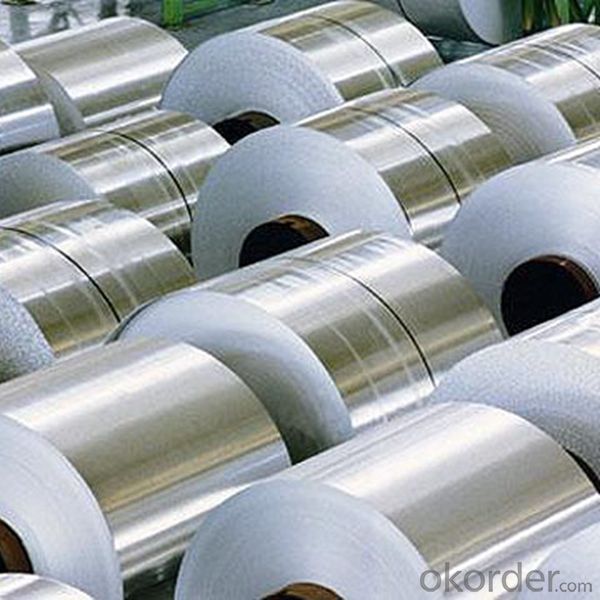
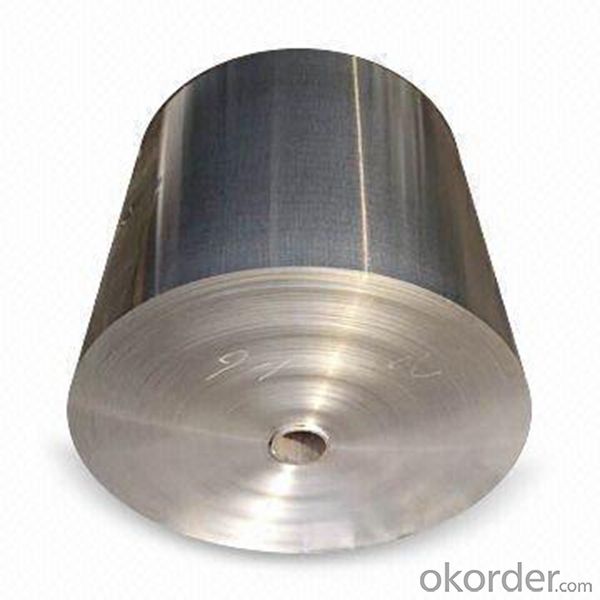
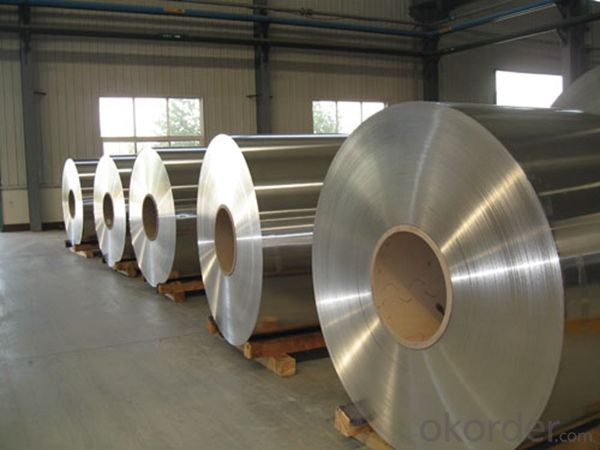
6. Package and shipping of Anodized Aluminum Rollss for Sale China Supply
eye to wall
eye to the wall
with wood pallet (wooded case also available)
7. FAQ
1) What is the delivery time?
Dpends on actual order, around 20 to 35 days
2)What is the QC system:
We have QC staff of 20 persons and advanced equipment, each production is with MTC traced from Aluminum ingot lot.
3) What market do you mainly sell to?
Australia, America, Asia, Middle East, Western Europe, Africa etc
- Q: G'day guys, I'm wanting to get the tinnie out but im not looking on spending to much on oars, Aluminum ones are quite cheap i can pick some up for $50, but i was just wondering if there any good? anyone had good or bad experience with them? and would it just be worth forking out extra for wooden ones?
- no, but I did kick a pedophile in the pebbles outside of my boathouse, which contains several aluminum boat-oars.
- Q: This question asks for a comparison between cold rolling and hot rolling processes, specifically in the context of steel wire production for coilings.
- <p>Cold rolling and hot rolling are two distinct processes used in the manufacturing of steel wires for coilings. Hot rolling is performed at high temperatures, typically above the recrystallization temperature of the steel, which allows the material to be shaped more easily. This process results in a more ductile and less hard steel, which can be beneficial for certain applications. However, hot-rolled steel may have a rougher surface and may require further processing to achieve desired dimensions and surface finish. Cold rolling, on the other hand, is done at room temperature, which imparts a harder and smoother surface to the steel. It is more precise and results in tighter tolerances, making it suitable for applications requiring high strength and precision. Cold-rolled steel also has better surface finish and dimensional accuracy compared to hot-rolled steel. However, cold rolling is more energy-intensive and may not be suitable for very thick materials due to the increased hardness of the steel at room temperature.</p>
- Q: How are aluminum coils used in the manufacturing of cookware?
- Aluminum coils are used in the manufacturing of cookware as they provide excellent heat conductivity, allowing for even and efficient cooking. These coils are shaped and formed into various cookware items like pots, pans, and baking sheets. The lightweight nature of aluminum ensures ease of handling and maneuverability for users. Additionally, the durability and corrosion resistance of aluminum make it a popular choice for cookware, ensuring long-lasting and reliable kitchen tools.
- Q: Is it possible to use an aluminum coil for cooking rice?
- <p>While it is technically possible to use an aluminum coil to cook rice, it is not recommended due to potential health risks. Aluminum can leach into food, especially when heated, and long-term exposure to aluminum may have adverse effects on health. Instead, use materials like stainless steel, cast iron, or non-stick cookware specifically designed for cooking rice to ensure safety and better results.</p>
- Q: What are the different surface textures available for aluminum coils?
- There are several different surface textures available for aluminum coils, each with its own unique characteristics and applications. 1. Smooth: Smooth surface texture is the most basic and common type of finish for aluminum coils. It has a sleek and polished appearance, making it suitable for a wide range of applications such as architectural cladding, signage, and consumer electronics. 2. Stucco: Stucco texture features a raised pattern resembling small pebbles. This texture is achieved by embossing the surface of the aluminum coil, providing enhanced durability and resistance to scratches and dents. It is often used in applications where a more robust and decorative finish is desired, such as roofing, wall panels, and decorative trim. 3. Diamond: Diamond texture features a diamond-shaped pattern embossed onto the surface of the aluminum coil. This texture not only enhances the aesthetic appeal but also provides additional traction and slip resistance, making it ideal for applications such as flooring, stairs, and ramps. 4. Brushed: Brushed texture is achieved by mechanically brushing the surface of the aluminum coil, creating a linear pattern. This finish gives the aluminum a distinctive, satin-like appearance, making it popular for architectural applications such as interior wall cladding, furniture, and decorative elements. 5. Hammered: Hammered texture is achieved by hammering the surface of the aluminum coil, resulting in a unique and irregular pattern. This texture provides a rustic, handcrafted look, making it suitable for applications such as decorative accents, light fixtures, and furniture. 6. Perforated: Perforated texture involves creating a pattern of small holes or perforations on the surface of the aluminum coil. This texture allows for increased airflow, light transmission, and sound absorption, making it commonly used in applications such as ventilation systems, acoustic panels, and decorative screens. These are just a few examples of the various surface textures available for aluminum coils. The choice of texture depends on the specific requirements of the application, including aesthetics, functionality, and durability.
- Q: Can aluminum coils be used in the production of aluminum composite roofs?
- Yes, aluminum coils can be used in the production of aluminum composite roofs. Aluminum coils are commonly used in the manufacturing process of aluminum composite roofs due to their durability, lightweight nature, and ability to resist corrosion. The coils can be easily formed and shaped into the desired profile for the roof, ensuring a seamless and aesthetically pleasing finish. Additionally, aluminum offers excellent thermal and sound insulation properties, making it an ideal choice for roofing applications. Its high strength-to-weight ratio also contributes to the overall structural integrity of the roof. Overall, using aluminum coils in the production of aluminum composite roofs provides a reliable and long-lasting roofing solution.
- Q: What are the different alloy compositions used in aluminum coils?
- There are several different alloy compositions that are commonly used in aluminum coils, each with their own unique properties and applications. Some of the most frequently used alloy compositions include: 1. 1000 series alloys: These alloys are almost pure aluminum (with a minimum aluminum content of 99%), making them highly ductile and corrosion-resistant. They are often used in applications where high formability and good electrical conductivity are required, such as in electrical wiring and packaging. 2. 3000 series alloys: These alloys typically contain small amounts of manganese, making them stronger and more corrosion-resistant than the 1000 series alloys. They are commonly used in applications such as cooking utensils, chemical equipment, and decorative trim. 3. 5000 series alloys: These alloys contain magnesium as the primary alloying element, which significantly enhances their strength and hardness. They are known for their excellent resistance to corrosion and are often used in marine environments, as well as in the automotive and aerospace industries. 4. 6000 series alloys: These alloys are alloyed with magnesium and silicon, which results in improved strength, heat treatability, and weldability. They are commonly used in applications such as architectural and structural components, as well as in transportation and electrical conductors. 5. 7000 series alloys: These alloys are primarily composed of zinc as the main alloying element, which gives them exceptional strength and toughness. They are commonly used in high-stress applications such as aircraft structural components and sporting equipment. It's important to note that there are many other alloy compositions used in aluminum coils, each tailored to specific requirements and applications. The choice of alloy composition depends on factors such as desired strength, corrosion resistance, formability, and cost considerations.
- Q: I am confused by that. One guy told me that he puts aluminium foil on his modem to receive the Internet better. Another guy told me that aluminium stops all kind of rays. What is correct?
- to improve WiFi signals. But it just acts like a reflector. In other words it increases the signal in one direction and reduces it in another. Another guy told me that aluminium stops all kind of rays. It reflects some kinds of waves. It does not reflect or stop high energy stuff like X-rays and gamma rays.
- Q: Can aluminum coils be used in signage applications?
- Yes, aluminum coils can be used in signage applications. Aluminum is a popular material for signage due to its durability, lightweight nature, and resistance to corrosion. It can be easily formed into various shapes and sizes, making it suitable for different types of signage, including billboards, nameplates, and outdoor signs. Additionally, aluminum can be painted or laminated to achieve different visual effects and enhance the overall appearance of the signage.
- Q: Can aluminum coils be used in the production of aluminum sunshades?
- Aluminum sunshades can indeed incorporate aluminum coils. In the manufacturing process of these sunshades, aluminum coils serve as the initial material. These coils are crafted from top-notch aluminum, renowned for its lightweight and resilient properties. They are subsequently formed and molded into the desired shape for the sunshade, whether it is slats, louvers, or a solid panel. The corrosion resistance and ability to withstand diverse weather conditions are among the reasons why aluminum is a favored choice for sunshades. It is worth noting that aluminum is easily recyclable, rendering it an environmentally friendly material for sunshade production. All in all, aluminum coils are indispensable elements in the creation of aluminum sunshades, contributing to their strength, durability, and aesthetic allure.
Send your message to us
5754 Aluminum Coil - Anodized Aluminum Rolls for Sale China Supply
- Loading Port:
- Shanghai
- Payment Terms:
- TT OR LC
- Min Order Qty:
- 5 m.t.
- Supply Capability:
- 10000 m.t./month
OKorder Service Pledge
OKorder Financial Service
Similar products
Hot products
Hot Searches
Related keywords
